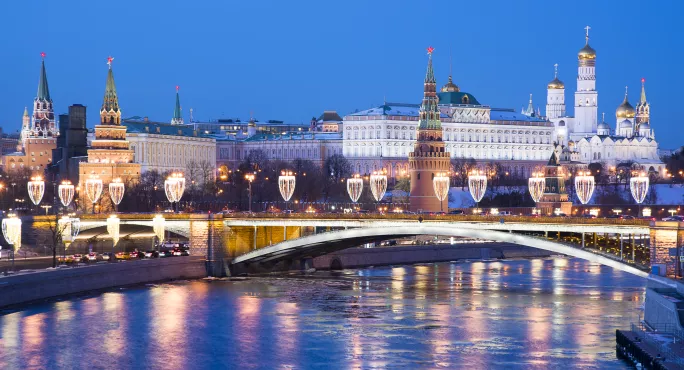- Home
- ‘In Moscow, you’ll never be bored. Just a bit cold’
‘In Moscow, you’ll never be bored. Just a bit cold’

When I announced to my father that I was moving to Russia at the age of 21, he had very few words to say about it.
“Moscow? Russia? Why?”
I am happy to say that, five years later, my parents’ initial views of this vast country - and mine - have changed enormously.
Moscow is not as you might expect: it is not bleak or stuck in the past, as my history teacher would have had me believe. It is also not a scary place to live or visit. In fact, I have felt safer in Moscow than in any other place I have yet visited.
Moscow, in particular, is modernising fast.
An international outlook
I drive to work at 7am, though the traffic can be temperamental in the city. Taking the metro (one of the most efficient and affordable metro systems in the world) is often easier. However, it can get crowded if you are heading into the city.
Children arrive at 8.05am, and we begin the day by working on students’ individual targets. After a busy morning, we stop for lunch at 12pm.
School finishes at 3.20pm. Some days have after-school activities, and end a little later. Each day there are six 50-minute sessions, and 20 minutes dedicated to phonics.
Class teachers use the English national curriculum, with an additional focus on supporting students who speak English as an additional language, and on making the curriculum accessible for them.
The weather can be a challenge, but the school is incredibly adaptable to the changing weather here. As a result, outdoor learning takes place throughout the year, despite the dark winters and stormy summers.
The students come from an enormous range of international backgrounds, with many of the families working in Moscow as expatriates themselves.
It’s a vibrant place to work in. International Week is a particular highlight of the year, when all students, teachers and parents get to share their own cultures.
Spectacular
Moscow is an exciting city to live in with an array of cultural entertainment, the majority of which is either free or very affordable. The events of the city are breathtaking - from the parades of Victory Day to the light shows during the autumn season, they truly are spectacular to see.
Many Russian people are fascinated to speak to an English native (though this is not always the case), and you will find that it’s very easy to make friends with the locals. They appreciate any attempts at speaking their language, even when they have no idea what you’re trying to say.
One of my fondest memories to date has been taking part in a charity run, raising money for a student who needs a heart transplant.
Not only were staff, parents and students running for the cause, but they also took part in a colour tag game together.
We all met on the school playground, before taking handfuls of powdered paint to throw into the air. Before long, we were covered in all sorts of colours. It was amazing to see the whole school having such a great time for a good cause.
Having lived and worked in Moscow for the past five years, I’ve found that the incredibly supportive atmosphere motivates me to improve my own practice as a teacher.
The school has encouraged me to follow my ambition and given me many opportunities to lead events, staff training and new initiatives. The staff are encouraged to share their own good practice, so any specialisms are shared with colleagues.
Wrapping up warm
As anyone can probably guess, the hardest part about working in Moscow is the bitter weather, which hits for around seven months of the year. The lowest temperature I’ve experienced has been -32C, which lasted for two days.
All you can do is wear thermals, fluffy socks and a good warm coat when you have outdoor duties. Moscow is a beautiful place with challenging seasons, although it is definitely worth it for the cost of wrapping up.
With such a variety of places to see, as well as the nearby countries, which are an absolute steal to fly to, you will surely never be bored in Moscow. Ignore the negative press, and judge it for yourself.
You will not be disappointed.
Alice Hanna Reid is a teacher at the International School of Moscow
Keep reading for just £1 per month
You've reached your limit of free articles this month. Subscribe for £1 per month for three months and get:
- Unlimited access to all Tes magazine content
- Exclusive subscriber-only stories
- Award-winning email newsletters
